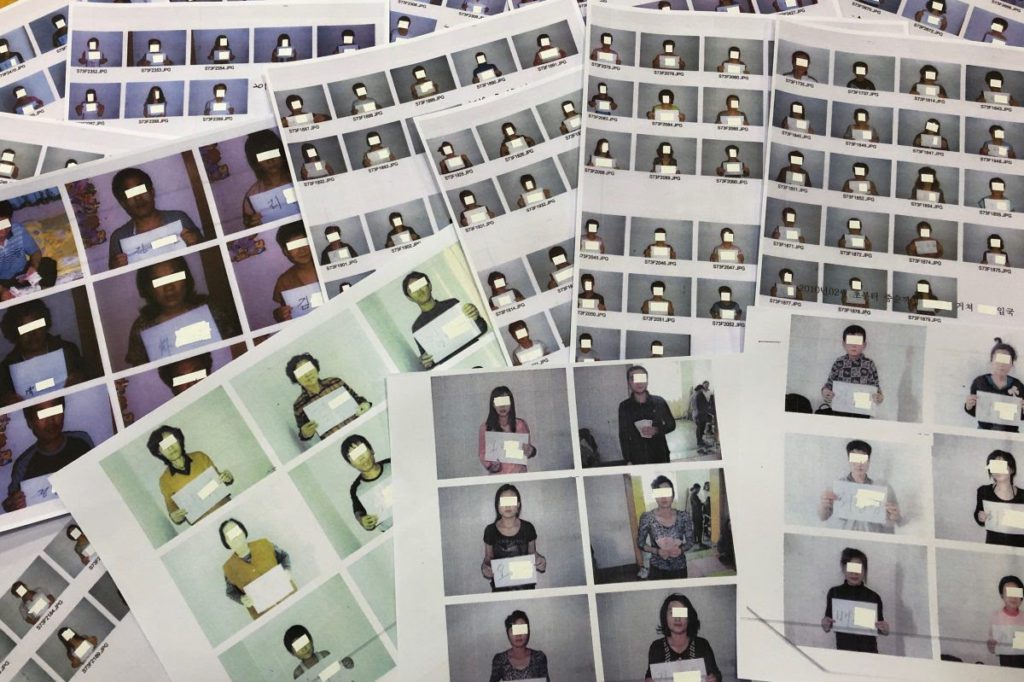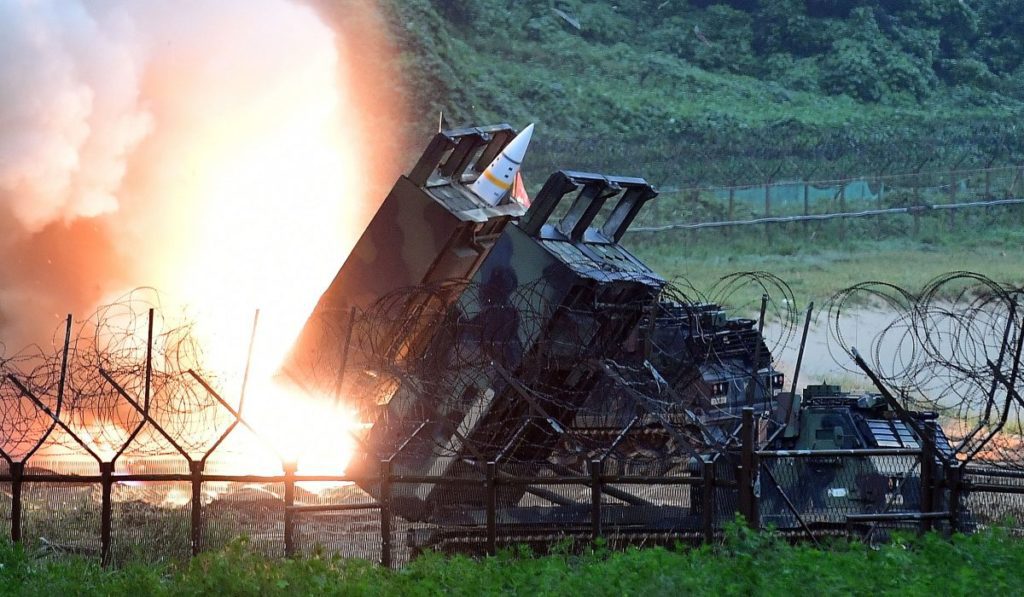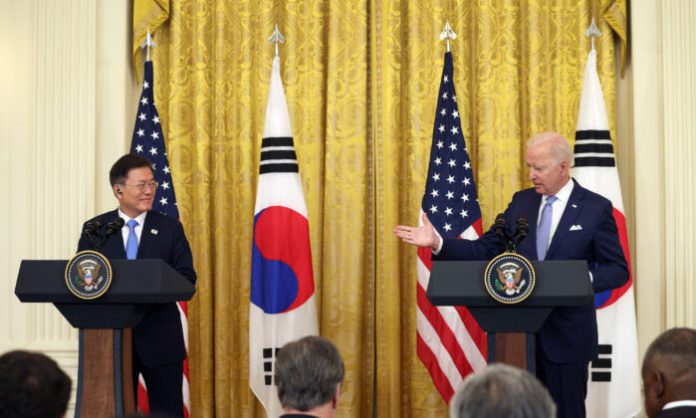This article was originally published by The Epoch Times
Commentary
Before South Korean President Moon Jae-in met with President Joe Biden in Washington on May 21, both sides worried the other side was going to say something upsetting.
Nobody did.
And in that sense the Moon-Biden summit was a success.
Indeed, these head of state meetings are almost always a ‘success’—at least as measured by cordial discussions, a lunch, a lengthy ‘official statement’ of what the two sides agreed in language that each side can interpret as they wish (especially to their domestic audiences) and a photogenic press conference.
As a result, post-summit pundit assessments often seem like Rorschach test results. In this case, some saw a recommitment to the ROK-U.S. alliance and a ‘win-win,’ others remain skeptical.
My sense of things? I think President Moon came out of it pretty well, but as for the U.S.-ROK alliance, I’m not so sure.
MOST READ
Here’s why:
What Are Moon’s Real Goals?
As a starting point, it’s useful to understand who was actually at the meeting. Moon came to Washington as a leftist with different objectives than the Americans, and he left the same way.
Moon reflects a mindset among some South Korean leftists that is more than just naiveté, rather it shows an ideological affinity for ‘authoritarianism’ of the North Korean or Chinese sort.
Look closer and it is easy to see Moon may not like America all that much. He was a student radical—pro-North Korea and anti-American. And Moon is on record about his delight on hearing America lost in Vietnam. He has never explained this away as youthful stupidity.
The Biden team should have driven him over to the Vietnam Memorial, five minutes from the White House, and asked if he was still ‘euphoric.’
Moreover, in Moon’s circles, plenty of people say it’s the United States that keeps North and South Korea divided. Although they are coy about it, they would like to see American forces off the peninsula and the alliance terminated.
It’s not just Moon. His administration is full of so-called ‘Jusapas,’ one-time radicals who appear unrepentant even now.
Consider Lee In-young, the Unification Minister appointed in July 2020. Lee was the no. 2 person in the Anti-American Youth Association. This was the underground organization that provided leadership to Jeondaehyup, the violent, radical 1980s student organization based upon North Korea’s Juche ideology.
And what about Cho Kuk, whom Moon nominated for Minister of Justice? He founded the Socialist Workers League of Korea—calling for armed revolution in South Korea.
The current leader of Moon’s Democratic Party recently called the United States a ‘flawed democracy.’ He earlier compared then-U.S. Ambassador Harry Harris to a governor-general during the Japanese colonial era—a towering insult in South Korea. That’s not what you say if you understand that your main ally is willing to put its citizens in harm’s way, and even risk World War Three, just to protect you.
In December 2020, the same fellow commented that ‘the United States has more than 5,000 nuclear weapons and improves and develops them every year. So how can they force North Korea not to have any nuclear weapons?’
And this is the leader of Moon’s party.
These are the people Moon works with, who shape his strategies, and who will be there waiting when he comes home from summit photo ops. Understanding this helps give context to what was stated and agreed in Washington.
North Korea
Moon’s biggest win? Biden doesn’t seem to have pressured Moon over his soft approach (some would say, ‘appeasement strategy’) to dealing with North Korea.
And Moon just might interpret Biden’s apparent agreement to ‘diplomacy and dialogue, based on previous inter-Korean and U.S.-DPRK commitments’ as the Americans tacitly agreeing to Moon’s method for handling Pyongyang.
So don’t be surprised if Moon pushes to provide aid to North Korea and to relax sanctions—and even goes ahead without permission—despite a promise to ‘coordinate … in lockstep’ with Washington. Biden may find himself browbeaten to go along.

The official statement mentions North Korean human rights several times and both sides agree to address the matter.
But Moon might think he has Biden’s acquiescence to do things his own way—including continuing to crack down with arrests, prosecutions and more on activists in South Korea who attempt to help suffering fellow Koreans by sending aid and information into North Korea. As Moon sees it, making Kim Jong-un happy is how one solves the problem of human rights in North Korea.
Indeed, shortly before the summit, Moon’s closest adviser told the Americans to ‘ignore North Korean human rights and just focus on North Korea’s nuclear weapons’—a recommendation Kim would wholeheartedly approve.
China
Moon did not have to mention China by name—to his relief no doubt. Nor was there mention of Chinese subjugation of Hong Kong, persecution of the Uyghurs or repression of religious groups in China.
Moon did agree to including reference to the ‘Taiwan Strait’ in the official statement—but suggested in the press conference afterwards that maybe it didn’t mean much. (Possibly he agreed only because the Japanese Prime Minister did so a few weeks earlier when meeting Biden.)
The official statement does mention freedom of navigation in the South China Sea and makes a reference to ‘the Quad’—the loose security alliance between the United States, Japan, Australia, and India structured to confront Chinese aggression. It also calls for an investigation into the origins of the COVID-19 outbreak.
In the statement’s plain language, Moon implicitly criticizes Chinese behavior—or at least sides with those who do. This would be a big deal—if he didn’t have his fingers crossed.
Moon’s colleagues back home apparently told the Chinese not to take anything the wrong way.
Vaccines, Cimate, Investments, Defense
President Biden agreed to provide COVID vaccines for 550,000 South Korean servicemen, and also to step up cooperation on vaccine production and distribution. Moon had been criticized domestically for his ineptitude in getting his country vaccinated. He needed the vaccines politically and Biden can look magnanimous.

There were of course South Korean promises to help with ‘climate change’—a sure way to keep Team Biden happy—and South Korean technology companies will invest billions of dollars in the United States, including semiconductor manufacturing.
There was relatively little language on defense matters beyond confirming defense ties—but that has always been the most solid part of the ROK-U.S. alliance—given past history and North Korea concentrating minds in both countries. Also, the South Korean military remains a force in its own right that Moon has not yet been able to bring to heel.
Relaxing ROK missile range limits was a calculated risk on Biden’s part. The South Korean’s really wanted it, and Biden’s team might have thought ‘what have we got to lose?’ and ‘maybe the Japanese won’t notice.’
The Real Test of ‘Success’
So, let’s see what actually happens over the next six months. The Rorschach will become clear as a photo when these questions are answered:
- Does Moon try to undercut sanctions on North Korea without U.S. agreement? After all, the summit statement said, “President Biden … expresses his support for inter-Korean dialogue, engagement, and cooperation.”
- Does Moon set up a meeting between Biden and Kim Jong-un and then complain if Biden refuses? Before the summit, Moon criticized former President Trump for not being able ‘close the deal’ with Kim Jong-un that Moon had so graciously presented. Will Biden get the same treatment?
- Do ROK and U.S. forces conduct serious, larger scale exercises—or is it a continuation of the pared-down exercises of the last few years intended to keep Kim Jong-un (and Beijing) happy?
- Do South Korean Navy ships join ‘Quad’ exercises—say, in the South China Sea through which much of South Korea’s imports and exports flow?
- Does Moon continue his crackdown on the human rights activists in South Korea who are attempting to aid North Koreans?
- Does Moon keep stifling critics in the South Korea media—using libel laws, tax audits, threats to revoke licenses? And does Moon sue fellow citizens who commit the severe offense of criticizing Moon himself?
- Does Moon do anything that China might object to?
- Does Moon push to have the United States sign a ‘peace treaty’ with North Korea— thus eliminating the need for U.S. forces on the Peninsula?
- Does Moon use latent anti-Japanese sentiment as a political tool for domestic political advantage? He promised to cooperate with the United States and Japan in the statement.
- Do Moon’s Democratic Party of Korea surrogates continue sniping at the United States? Too often their language sounds intended to please Pyongyang. Apparently, they think the U.S. government won’t notice or won’t say anything. They may be right.
The good news for the United States, regardless of the outcomes of the summit? Large majorities in South Korea support the ROK-U.S. alliance. And large majorities see China as a threat, not a partner. And very few people want a South Korea that is like North Korea.
But Moon does represent an extremist faction in South Korea’s body politic. It may be relatively small, but a small ruthless faction can move a country where most of its citizens don’t want to go.
One hopes Biden’s team is paying attention.
As one former senior U.S. diplomat who served in South Korea put it: “There is a tendency on the U.S. side to overlook the self-evident, or at least to not confront the Koreans about their illusions and misbehavior.”
Even the strongest alliances—even those ‘forged in blood’ need careful tending… and summit meetings perhaps matter less than who it is running a country.
Grant Newsham is a retired U.S. Marine officer and a former U.S. diplomat and business executive who lived and worked for many years in the Asia/Pacific region. He served as a reserve head of intelligence for Marine Forces Pacific, and was the U.S. Marine attaché, U.S. Embassy Tokyo on two occasions. He is a senior fellow with the Center for Security Policy.
Grant is the president of KCPAC based in Hawaii


